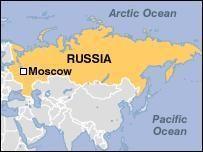
European producers have called on the authorities after experiencing difficulties exporting fruit and vegetables to Russia.
Freshfel Europe has called in the European Commission and Council after the Russian Federal Veterinary and Plant Sanitary Control Service, on November 15, banned all imports of plant produce, including fruit and vegetables, from Germany, due to alleged findings of thrips on imports of flowers.
The Russian Control Service has also been restricting imports of quarantinable crops from Estonia since August, arguing that the Estonian National Service for Plant Protection does not meet Russian plant sanitation standards.
And this week, the Russian Control Service announced a block on all imports of plant products from, or passing through the Netherlands, to be imposed on December 3, due to the alleged findings of western flower thrips on lettuce and parsley imports.
Freshfel’s general delegate, Philippe Binard, said: “The importance of Russia as a destination for exports of fresh fruits and vegetables from the EU cannot be overestimated. In 2003, Russia accounted for 13 per cent, or €401,441,000, of the EU’s total exports of fresh fruit and vegetables.”
The Netherlands, Belgium and Germany contribute nearly 82 per cent of Russia’s export total.
Freshfel Europe is concerned about the impact of the Russian Control Service’s policy. Binard said: “European exporters of fruits and vegetables depend on a transparent and predictable legal environment to efficiently organise their export campaigns. Although we do not dispute Russia’s right to implement measures to protect its environment and consumers from genuine sanitary and phytosanitary threats, we question the proportionality of the implemented measures with the alleged risks.”
Freshfel will support any action undertaken by the European Commission to alleviate current problems between Russian authorities and the European traders.
“In recent years, Freshfel has consistently advocated the negotiation of SPS export dossiers by European officials, in collaboration with national member state authorities,” said Binard. “In our view, this would contribute to the ‘political weight’ of the EU at the negotiation table, as well as to the speed and efficiency of the negotiations. The mandate which may be given to the Comission with regard to the current problems with Russia may prove to constitute a precedent to this end.”



